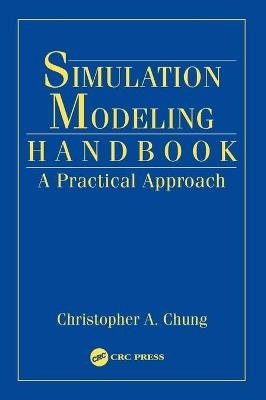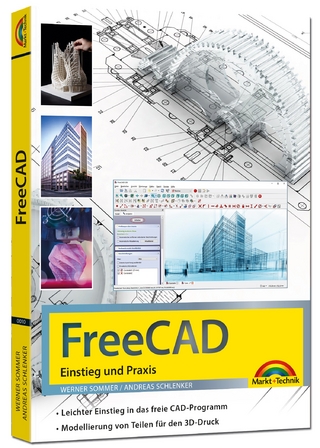
Simulation Modeling Handbook
A Practical Approach
Seiten
2003
Crc Press Inc (Verlag)
978-0-8493-1241-0 (ISBN)
Crc Press Inc (Verlag)
978-0-8493-1241-0 (ISBN)
Simulation modeling is becoming increasingly popular as a technique for evaluating the performance of resource allocation and alternate operating policies. This handbook is a practical, easy-to-follow reference that offers step-by-step procedures for conducting simulation studies that help decision-makers find the optimal courses of action.
The use of simulation modeling and analysis is becoming increasingly more popular as a technique for improving or investigating process performance. This book is a practical, easy-to-follow reference that offers up-to-date information and step-by-step procedures for conducting simulation studies. It provides sample simulation project support material, including checklists, data-collection forms, and sample simulation project reports and publications to facilitate practitioners' efforts in conducting simulation modeling and analysis projects.
Simulation Modeling Handbook: A Practical Approach has two major advantages over other treatments. First, it is independent of any particular simulation software, allowing readers to use any commercial package or programming language. Second, it was written to insulate practitioners from unnecessary simulation theory that does not focus on their average, practical needs.
As the popularity of simulation studies continues to grow, the planning and execution of these projects, more and more engineering and management professionals will be called upon to perform these tasks. With its simple, no-nonsense approach and focus on application rather than theory, this comprehensive and easy-to-understand guide is the ideal vehicle for acquiring the background and skills needed to undertake effective simulation projects.
Features
Presents step-by-step procedures for conducting successful simulation modeling and analysis
Addresses every phase of performing simulations, from formulating the problem to presenting study results and recommendations
Uses approaches applicable regardless of the specific simulation or software used
Includes a summary of the major simulation software packages and discusses the pros and cons of using general purpose programming languages
The use of simulation modeling and analysis is becoming increasingly more popular as a technique for improving or investigating process performance. This book is a practical, easy-to-follow reference that offers up-to-date information and step-by-step procedures for conducting simulation studies. It provides sample simulation project support material, including checklists, data-collection forms, and sample simulation project reports and publications to facilitate practitioners' efforts in conducting simulation modeling and analysis projects.
Simulation Modeling Handbook: A Practical Approach has two major advantages over other treatments. First, it is independent of any particular simulation software, allowing readers to use any commercial package or programming language. Second, it was written to insulate practitioners from unnecessary simulation theory that does not focus on their average, practical needs.
As the popularity of simulation studies continues to grow, the planning and execution of these projects, more and more engineering and management professionals will be called upon to perform these tasks. With its simple, no-nonsense approach and focus on application rather than theory, this comprehensive and easy-to-understand guide is the ideal vehicle for acquiring the background and skills needed to undertake effective simulation projects.
Features
Presents step-by-step procedures for conducting successful simulation modeling and analysis
Addresses every phase of performing simulations, from formulating the problem to presenting study results and recommendations
Uses approaches applicable regardless of the specific simulation or software used
Includes a summary of the major simulation software packages and discusses the pros and cons of using general purpose programming languages
Christopher A. Chung
Introduction. Problem Definition. Project Planning. System Definition. Model Formulation. Input Data collection and Analysis. Model Transition. Verification and Validation. Experimentation and Analysis. Generating Conclusions and Recommendations. New Developments in Simulation Analysis.
| Erscheint lt. Verlag | 15.7.2003 |
|---|---|
| Reihe/Serie | INDUSTRIAL AND MANUFACTURING ENGINEERING SERIES |
| Verlagsort | Bosa Roca |
| Sprache | englisch |
| Maße | 178 x 254 mm |
| Gewicht | 1242 g |
| Themenwelt | Informatik ► Grafik / Design ► Digitale Bildverarbeitung |
| Mathematik / Informatik ► Informatik ► Theorie / Studium | |
| Technik ► Umwelttechnik / Biotechnologie | |
| ISBN-10 | 0-8493-1241-8 / 0849312418 |
| ISBN-13 | 978-0-8493-1241-0 / 9780849312410 |
| Zustand | Neuware |
| Haben Sie eine Frage zum Produkt? |
Mehr entdecken
aus dem Bereich
aus dem Bereich
alles zum Drucken, Scannen, Modellieren
Buch | Softcover (2024)
Markt + Technik Verlag
24,95 €
Methoden, Konzepte und Algorithmen in der Optotechnik, optischen …
Buch | Hardcover (2024)
Hanser (Verlag)
39,99 €


